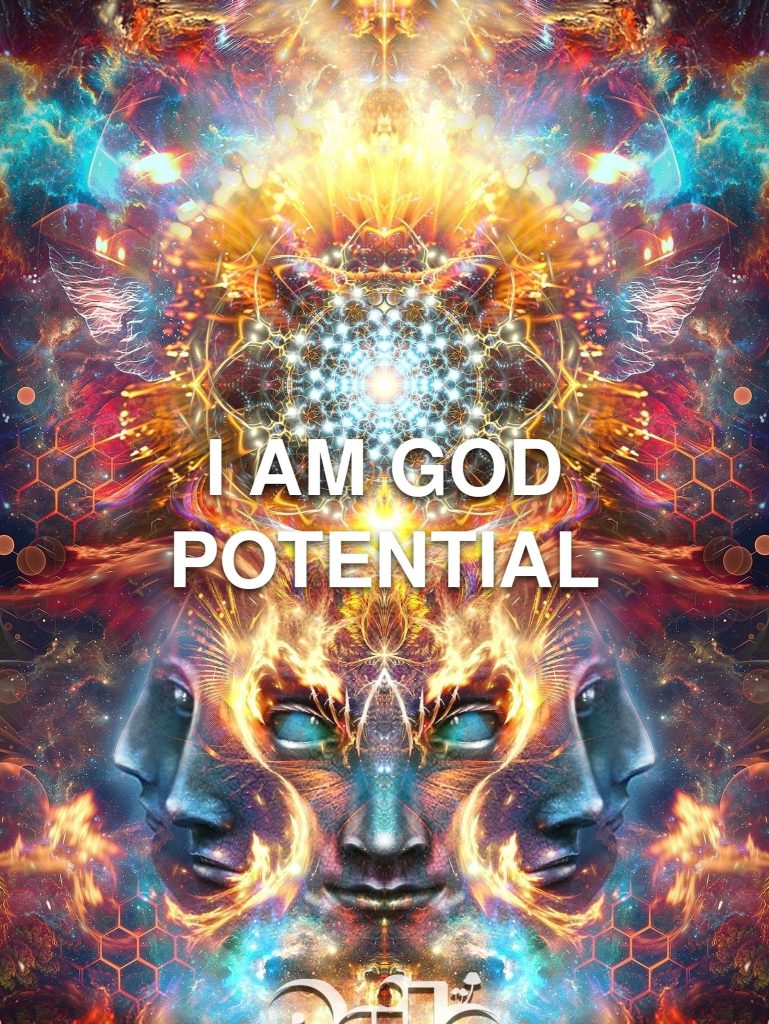Overcoming Disempowering Perspectives Concerning God
The concept of God has been central throughout human civilization, shaping our values, societies, and personal beliefs. While religious institutions have historically positioned the divine as an external authority, this perspective can lead to spiritual bypassing, where individuals divert their inherent capabilities into the ideology of organized religion. Today I’m exploring how recognizing this dynamic can foster a more authentic and transformative approach to spirituality, empowering individuals to reclaim their autonomy and cultivate self-actualization.
Initially, we must consider how the idea of God has been shaped to exert control over individual thought and action. Historically, societies have framed an image of the divine that positions external authority as the ultimate source of truth and morality. This dualistic perspective presents humanity as passive recipients of grace rather than active agents of change, effectively stifling personal agency. When individuals rely solely on religious institutions for spiritual growth, they often find themselves entangled in a spiritual treadmill that hampers their potential for self-discovery and empowerment.
Institutionalized religion plays a significant role in perpetuating this ideology. Many churches, mosques, and temples exert considerable influence over their congregants, dictating moral behaviors, life decisions, and personal beliefs. This structure can lead to an exploitation of faith, where the devotion of individuals is siphoned off to support institutions rather than fostering genuine personal or community growth. In a system that prioritizes adherence to dogma, the exploration of individual spirituality may become severely compromised.
Dependence on external sources of spirituality can lead to a detrimental pattern known as spiritual bypassing. This phenomenon occurs when individuals use spiritual beliefs or practices to sidestep emotional issues or fundamental human experiences. Instead of confronting their challenges, people may turn to religious rituals or affirmations that superficially provide comfort but fail to foster meaningful change. This diversion of spiritual energy can result in stagnation, leaving individuals stuck in cycles of avoidance rather than engagement.
However, the potential for genuine transformation emerges when individuals recognize and reclaim their own power. By withdrawing energy from constraining narratives, people can begin to engage with spirituality on their own terms. This shift can lead to a more conscious approach to self-exploration, emphasizing personal responsibility and authentic connections within the community.
By detaching from traditional constructs of power, we open ourselves to a landscape of possibilities rooted in self-exploration and communal ties. Individuals empowered by their own agency can contribute to the greater good by fostering connections based on compassion, cooperation, and shared values. These new methodologies can take many forms, from community-centered efforts advocating for social justice to personal spiritual practices that emphasize empathy and inner growth.
Furthermore, this shift from collective dependence to individual empowerment enables a more profound sense of spirituality that is not dictated by dogma but rather shaped by shared human experiences and values. In this paradigm, spirituality becomes a dynamic journey, allowing individuals to cultivate their unique paths while supporting one another in the quest for deeper understanding and connection.
The movement away from institutional dependency toward self-empowerment not only enriches individual lives but also has the potential to transform communities. When individuals prioritize structured mutual support and shared growth, they create environments where compassion, understanding, and empathy flourish. Such communities can replace the restrictive power dynamics of traditional institutions, paving the way for a collective consciousness that truly reflects the diversity and richness of human experience.
Realize that by recognizing the limitations imposed by external religious frameworks, we unlock the potential for genuine spiritual growth rooted in authenticity and self-discovery. The idea of God need not serve as a mechanism for control but can instead foster a pathway toward greater humanity. By embracing new paradigms that empower individuals, we can move toward a future where spirituality enhances our capabilities and invites genuine connection among all individuals.
![]() Joseph Keel
Joseph Keel ![]()








Leave feedback about this